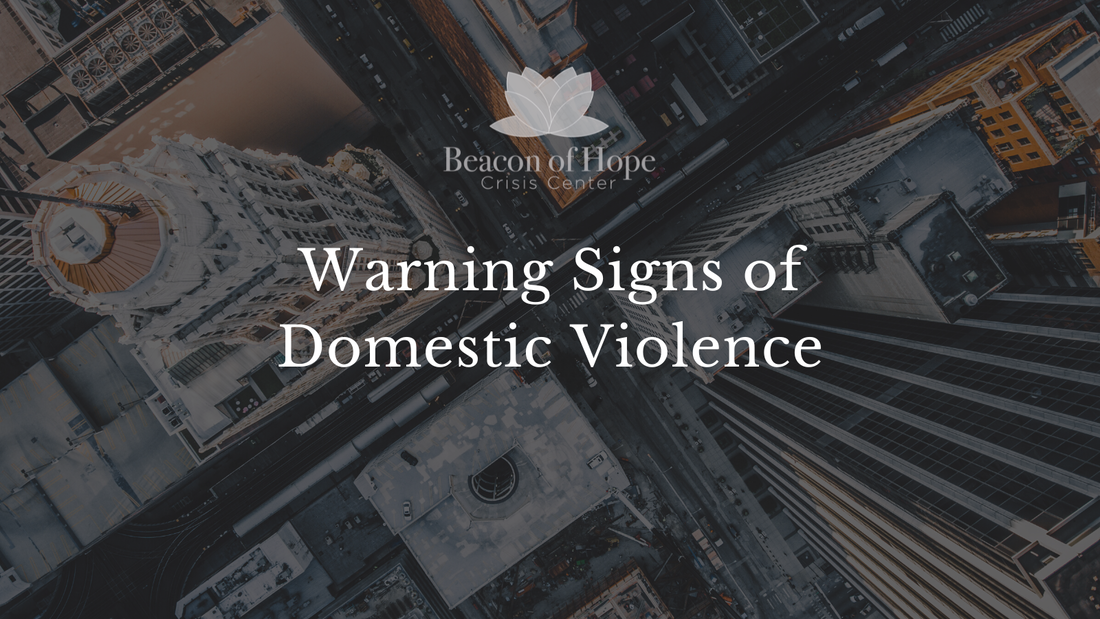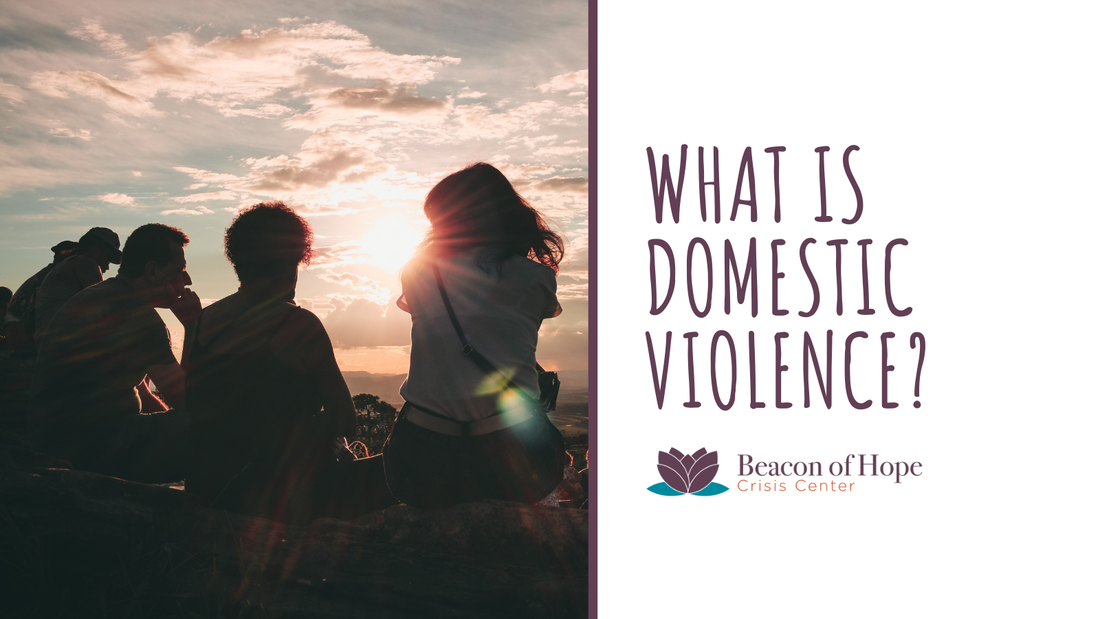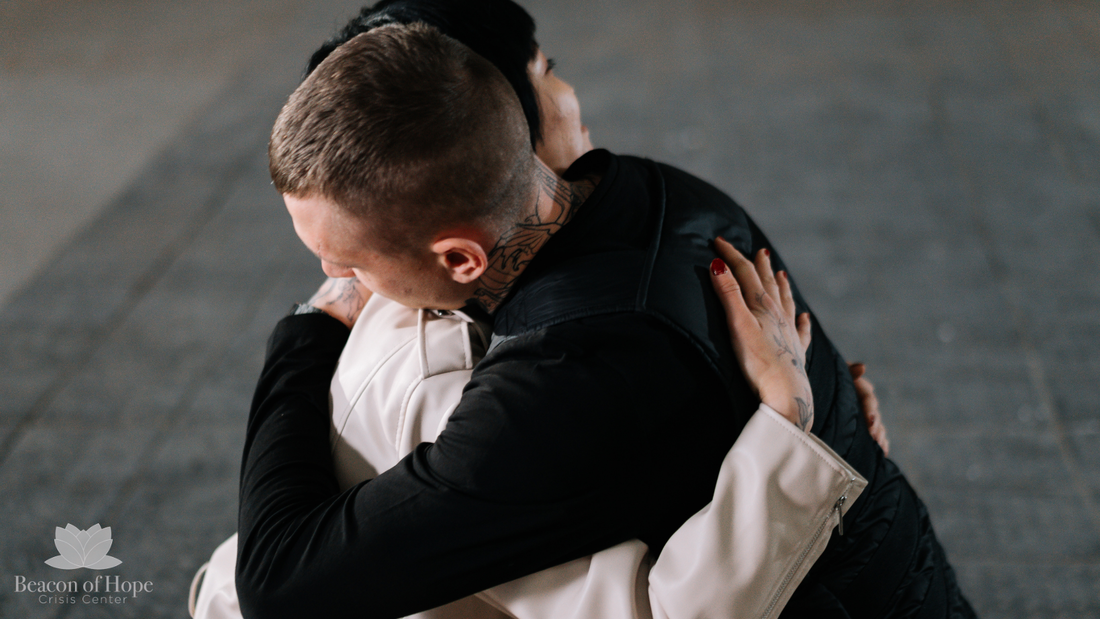|
By: Cheyenne Taylor With the end of 2022 quickly approaching and 2023 on the horizon, we are asking for the assistance of our community to help our agency end this year on a high note. We have been very busy this year with meeting the increasing needs and requests from survivors in our community. In fact, in the first nine months of 2022, we served over 1,000 clients, filed 208 protective orders, received nearly 2,000 crisis calls, and prepared over 1,500 safety plans for victims. Our agency continues to see an uptick in client requests for services. The COVID-19 pandemic has continued to amplify the risks and cause financial issues for victims that they struggle to overcome. Our agency has continued to address those needs and provide an abundance of services to help relieve victims of domestic violence and sexual assault of their burdens. In the first nine months of 2022, we utilized interpreter services for 371 crisis calls, had 52 clients accept referrals for specialized medical care out of the 224 who reported strangulation victimization. Additionally, we provided nearly 750 counseling sessions and shelter referrals to 1,408 domestic violence victims, many of whom were homeless and seeking safe housing. Overall, we provided new and existing clients with 3,693 services, including education on victim rights and the criminal justice system. All of this has been possible due to the diligent efforts of our agency staff, victim advocates, and the contributions from our devoted donors. By donating at the end of the year, you are helping us to continue to meet the growing needs of our clients and allowing us to prepare for these colder months, which bring a slew of unique issues. In the spirit of the upcoming holiday season, consider giving back to Beacon of Hope Crisis Center so we can continue to meet the needs of those vulnerable in our community. Your help is needed more than ever, and this is the perfect time to act and give back to the survivors struggling to provide for their families or keep roofs over their heads. With even as little as $20, you can improve a survivor's circumstances and ensure they get a hot meal or gas in their car to make it to work. Your donation saves lives; utilize that power to make a difference. Speak with a victim advocate by calling our confidential crisis line at 317-731-6140. You can also reach us through our social media sites or contact us page. If you are in immediate danger, please call 9-1-1.
Protective Order Filing "I’ve been assisting a victim of domestic violence that has experienced psychological abuse, verbal abuse, and stalking. They have been overwhelmed and struggling to do their daily tasks. Their primary concern was working on safety and self-sufficiency. It was important to them that they were able to move past this as soon as possible. The victim wanted a protective order because their abuser was not leaving them alone and seemed to be getting more unstable as the incidents continued. I was able to schedule the protective order appointment soon after originally connecting with the victim. They were so thankful we could get them in quickly. During the appointment, I was able to explain each step of the petition and answer all the questions the victim had regarding the process. The victim was very thankful for the assistance with filing the protective order. They felt more confident about what to expect after I explained the next steps for the protective order process. The victim also told me they finally felt less alone. They really have not talked to many people about their experiences, so they felt better having an agency that believed them. I will continue working with this victim throughout the process to support them and offer additional resources."
Victim Advocate - Beacon of Hope Crisis Center If you or someone you know is experiencing domestic violence and/or sexual assault, call our confidential hotline at (317) 731-6140. Victim advocates are trained to provide free help, referrals, and resources for those in need. There is hope for survivors. In the case of an emergency, please call 9-1-1. Criminal Justice Advocacy "I connected with a victim of domestic violence after receiving a police report. The victim had been shot by their abuser and needed assistance with establishing safety and coping with the trauma they experienced. Their abuser has used weapons as a scare tactic throughout their relationship, and the violence has escalated tremendously.
Once connected with the victim, I introduced myself and explained the services provided at BOHCC as well as their rights as a victim. We discussed how they could stay updated on the criminal case. I also gathered additional information about the situation so I could have a complete understanding to better assist the victim. As we were talking, the victim became emotional and started to cry. I immediately stopped asking questions and focused on what the victim needed in that moment. I actively listened to their concerns and how they were feeling. They were frustrated by everything and felt pressured by others. The victim shared with me that they felt as if their feelings were not valid. They were being told how they should feel about the situation and this was causing them to be confused about their own thoughts. I quickly validated their feelings and expressed that they are the only one who went through this experience, so they are the only one who can know what to think about it. I discussed counseling and ensured they had the information for BOHCC’s counselor. The victim started to calm down and felt relieved to hear that their concerns and thoughts are valid. They hadn't been able to be open with someone about the situation, and they were grateful to have someone to talk to about everything. The victim thanked me for listening to them and validating their feelings. They appreciated having someone to talk to without feeling judged. The victim has felt a lot of pressure from various sources and needed to share their thoughts without judgment. I was happy to be a support for the victim and listen actively to their concerns. I will continue to work with the victim as they progress towards safety and self-sufficiency. It feels rewarding to be an outlet that victims can vent to and to be able to provide a comfortable space for them to share their thoughts." Victim Advocate - Beacon of Hope Crisis Center If you or a loved one needs supportive services for domestic violence or sexual assault, call our confidential crisis line at 317-731-6140. In the case of an emergency, contact 9-1-1 immediately. If you would like to learn more about the work we are doing, register and join us during our Virtual Summit on October 26th. #DVAM We Serve Everyone "I recently assisted a victim of domestic violence with filing a Protection Order against their former intimate partner. The victim had been facing ongoing and escalating harassment from their abuser since they had been granted full legal and physical custody of their shared child. Their abuser would contact them multiple times a day claiming to want to see their child, but when the victim would take their shared child to visitations with the abuser, the abuser would spend the visitation yelling at the victim and has even physically attacked the victim. The victim was fearful of their abuser and stated that they dreaded every visitation with their abuser because they knew their abuser was going to verbally harass them the entire time.
The victim had reported incidents of abuse to law enforcement but never felt comfortable cooperating with further investigations after the reports because they felt guilty and shameful about the abuse. The victim also never felt that they were truly believed by law enforcement because of their gender identity and the fact that they are physically larger than their abuser. The victim stated that during physically violent incidents, they would just try to minimize the harm done to them and get as far away from their abuser as possible as they never wanted to cause harm to their abuser because that was not how they were raised. Even once the victim’s protection order had been granted, and the judge told them that their abuser served a credible threat to their safety, they still felt shameful for having to file. I was able to let the victim know that there are many victims and survivors of domestic violence that identify as their gender and provided them with statistics backing this information up. Together, we discussed various resources geared towards victims of the same gender identity as the victim. The victim thanked me for always offering them a non-judgmental ear to listen and never making them feel bad for reporting these incidents." Victim Advocate - Beacon of Hope Crisis Center To learn more about how Beacon of Hope Crisis Center is making a positive impact in the community, register and join us during our Virtual Summit on October 26th. If you or someone you know is experiencing domestic violence or sexual assault, call our confidential crisis line at 317-731-6140 to speak with a Victim Advocate. In the case of an emergency, contact 9-1-1 immediately. Emergency Hotel Stay Assistance "I received a crisis call from a local shelter advocate late one evening. The shelter advocate let me know that they had a victim of domestic violence that recently fled their abuser and had been staying on the streets with their children. The shelter advocate let me know that the victim had called all local shelters and all shelters in the area were at capacity, leaving the victim with no other safe option. I immediately asked to connect with the victim and began our process of requesting an emergency hotel stay for the victim and their children while they wait for shelter placement to become available.
The victim fled their abuser days before with the few belongings they could get out of the home. They and their children had stayed in their car for the past few days, parking in various places due to the abuser stalking them. The victim had nowhere to go and was too fearful to even sleep in their car. After answering all of my questions and telling me their story, the victim began crying. They told me that they were thankful for me even if I was not able to help their family find safe housing that evening because they felt heard. They told me how, in the days since they left, they felt like they were not being treated decently by those they had reached out to for help. I let the victim know I would do everything I could to find them and their children a safe place to stay this evening. When I called the victim less than an hour later to let them know that we booked a hotel room only minutes from where they were, the victim began sobbing. They thanked me profusely and told me I was their "angel." I was very glad to have given the victim and their children a safe place to stay." Victim Advocate - Beacon of Hope Crisis Center To learn more about our Impact on the community, register and join us during our Virtual Summit on October 26th. If you or a loved one needs supportive services for domestic violence or sexual assault, call our confidential crisis line at 317-731-6140. In the case of an emergency, contact 9-1-1 immediately. By: Jenna Krathwohl Domestic violence is extremely common even though it is still seen as a private matter. Domestic violence is more common than diabetes. In fact, it is estimated that 42.5% of Indiana women and 27.9% of Indiana men experience intimate partner physical violence, intimate partner sexual violence, and/or intimate partner stalking in their lifetimes (1). Despite its prevalence, it can be difficult to know how to recognize abuse and what to do if it happens. There is no typical personality of an abuser. In fact, abusers can come in all genders, sexualities, nationalities, abilities, and ages. Anyone can be an abuser, just as anyone can be a victim. However, there are some common traits listed below that domestic abusers may have in common (2).
There are other warning signs that a person may be an abuser. It is important to understand that that these are potential warning signs and it does not imply someone may be an abuser. These are just some of the traits (2).
If you or someone you know is experiencing domestic violence and/or sexual assault, call our confidential hotline at (317) 731-6140. Victim advocates are trained to provide free help, referrals, and resources for those in need. There is hope for survivors. In the case of an emergency, please call 9-1-1. (1) National Center for Injury Prevention and Control (2019). The National Intimate Partner and Sexual Violence Survey: 2010-2012 State Report. Centers for Disease Control and Prevention. Retrieved from https://www.cdc.gov/violenceprevention/pdf/NISVS-StateReportBook.pdf (2) National Coalition Against Domestic Violence (N.D.). Signs of Abuse. National Coalition Against Domestic Violence. Retrieved from https://ncadv.org/signs-of-abuse By: Kaylee Kriese Did you know that tracking someone through their phone or tech accessories has become even easier? Although most people have heard of GPS trackers, few are aware of the most recent technological advances that has made crimes such as stalking and theft all too easy. In April of 2021, Apple released their new product, AirTags, with the intention that their users could track their keys or wallet in the event that they misplace them. If you’re someone who loses things easily, this water-resistant product might just be a lifesaver, but in other cases, these small, circular disks can be used for more sinister purposes.
Most notably, AirTags can be discreetly stored, as those who took to Tiktok, Youtube, and Twitter shared from their own experiences. These victims of tracking, mostly women, report finding AirTags taped to the underside of their car or behind their license plates. They found them only after being notified through their iPhone’s Bluetooth technology that another AirTag was detected moving with them. When investigating this further, many of these women could locate a map of everywhere they had been through their device, which could be seen by other devices tracking them. Although Apple set up this notification feature to report when other AirTags are detected and even prompt a signal that generates beeping until the unknown device is located, many people are unnerved that they were able to be tracked at all, especially given what some report to be belated notifications about the tracking. Additionally, when some have attempted to use the “Find my” network that AirTags can be accessed with, they found that the Find my tool was unavailable. A well-known product, Tile, is yet another device that has generated discussion about its security features, though its creators anticipate the release of a new security feature like Apple’s sometime this year.[1] If you look up Apple’s description for AirTags, the website describes it as, “an accessory that provides a private and secure way to easily locate the items that matter most.”[2] Given the stories that have emerged in less than one year since the product’s release, the general consensus seems to be extreme uncertainty about the privacy and security this product offers. In our line of work, we know that abusers will implement whatever tools necessary to stalk and torment their victims. Given the newness of this technology, we anticipate more stories of products like AirTags being misused for ill intentions. If you own an AirTag or are considering purchasing one, we encourage you to research its security measures beforehand. If you or a loved one are a victim of stalking, call our confidential crisis line at 317-731-6140. If you are in a life-threatening situation, call 9-1-1 immediately. [1]https://www.nytimes.com/2021/12/30/technology/apple-airtags-tracking-stalking.html [2] https://www.apple.com/newsroom/2021/04/apple-introduces-airtag/ By: Olivia Ryder Domestic violence, which is also referred to as domestic abuse or intimate partner violence, is defined by the United States Department of Justice as “a pattern of abusive behavior in any relationship that is used by one partner to gain or maintain control over another intimate partner.” This abuse can be physical, sexual, verbal, emotional, psychological, spiritual, digital, or even economic.
Insults, threats, gaslighting, and sexual coercion are all aspects of domestic violence. In other words, domestic violence includes any abusive behaviors that frighten, intimidate, manipulate, hurt, blame, or injure an intimate partner or family member. It can happen in a wide variety of relationships, including but not limited to married couples, people dating, former couples, family members, and people with shared children. It is important to note that domestic violence can happen to anyone regardless of religion, actual or perceived race, color, sex, age, sexual orientation, gender identity or gender expression, marital status, national origin, language capacity, or disability. It impacts every community and people from all socioeconomic backgrounds. According to the National Coalition Against Domestic Violence (NCADV), nearly 20 people per minute are physically abused by an intimate partner in the United States. Meaning, in one year, more than 10 million women and men have experienced physical abuse by their intimate partners. Victims of domestic violence can experience diminished self-worth, anxiety, depression, and feelings of helplessness because of the actions and behaviors of their abusive partners. Free resources and help are available. For more information, contact our Confidential Crisis Line: (317) 731-6140. If you are in a life-threatening situation, call 9-1-1 immediately. By: Jenna Shearer The holidays are a lovely time to spend with friends and family. Many people try to get together and reminisce over the past year’s highs and lows. We also try to relax, recharge, and start fresh in the New Year. However, the cruel reality is that domestic violence doesn’t rest.
According to research, domestic violence increases over the holidays for several reasons:
It is important to recognize the warning signs of domestic violence while spending time with family or friends. A family member or friend may be experiencing abuse. If anyone reaches out for help, listen, and believe them. Take this opportunity to familiarize yourself with the warning signs of domestic violence. Warning Signs of Domestic Violence
You might be wondering what to do if you identify possible warning signs. The most important thing is to make sure that you respect the survivor’s space and avoid putting them in harm’s way by calling them out. Find a way to speak with the survivor about your concerns in private rather than in front of others. Talking about domestic violence saves lives. It’s important that we speak up when something does not feel right. If you are hesitant or unsure of how to approach this conversation, our advocates are here to help you navigate next steps. Local domestic violence agencies offer education and support for victims as well as families and friends impacted by these crimes. Speak with a victim advocate by calling our confidential crisis line at (317) 731-6140. You can also reach us through social media messaging or our contact us page. If you are in immediate danger, please call 9-1-1. By: Savannah Tipton Everyone at Beacon of Hope Crisis Center is committed to impacting positive change. Together we work to make a difference in the community and help survivors break free from the grip of domestic violence and sexual assault. We could not do this without our fantastic team of Victim Advocates. We are so grateful for their ongoing support and dedication to serve victims.
Beacon of Hope Crisis Center has been serving victims of domestic violence and sexual assault in our community since 2009. Our agency is looking for more dedicated employees to continue this legacy and provide these services to the survivors we work with. If you or anyone you know has a background in victim advocacy, criminal justice, grant writing, program management, or computer science we encourage you to apply! You will find you are supporting survivors and feeling fulfilled with a career at Beacon of Hope Crisis Center. Please share! Why I Love Working at Beacon of Hope Crisis Center
Benefits of Working with Beacon of Hope Crisis Center
|
About this blog
This blog is about our domestic and sexual violence crisis center, Beacon of Hope. We hope you find it full of helpful information, motivation, creativity, serious facts and positivity. We hope that it will help you know what is happening in our center, in our community and with our events. We hope you follow our blog in support of our organization and our mission. Archives
October 2024
Categories
All
|
|
CAREER opportunities © 2024 Beacon of Hope Crisis Center Privacy Policy Accessibility Statement Training Portal Login |










 RSS Feed
RSS Feed